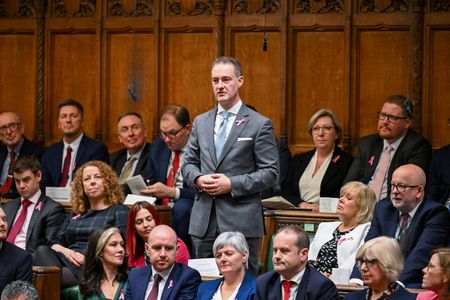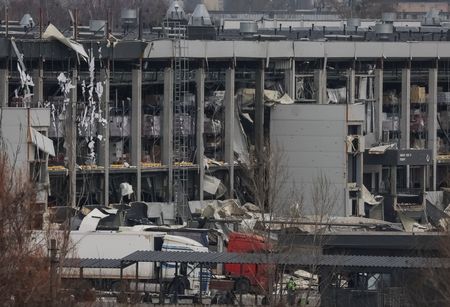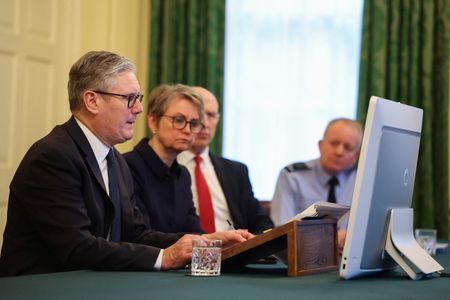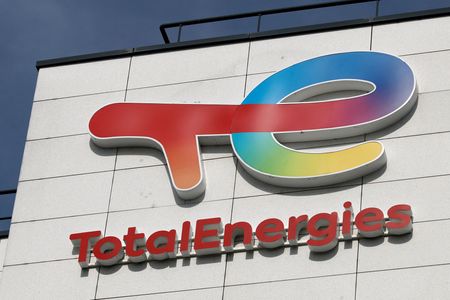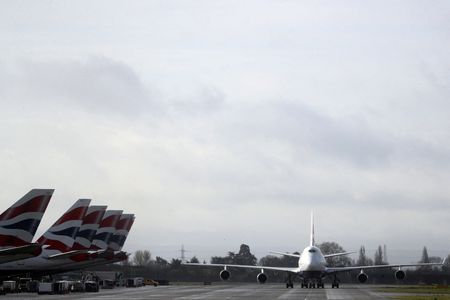By Sam Tabahriti
LONDON (Reuters) -Britain will include stockpiling of critical minerals in its defence procurement plan and expects lithium processing projects in northern England to break ground within the next few years as it seeks to reduce its reliance on China.
The government launched its critical minerals strategy last week, which set targets to meet 10% of domestic demand from UK mining and 20% from recycling by 2035, backed by up to 50 million pounds ($65.58 million) in funding.
The plan also seeks to ensure no more than 60% of any one mineral comes from a single country by that date to reduce supply chain risk.
Industry Minister Chris McDonald told Reuters on Tuesday that two London-based companies planning lithium refineries in Teesside, northern England, to supply battery-grade materials for electric vehicles were “very, very close to the final stage” and predicted “spades in the ground” in the coming years.
He added that Britain’s largest lithium reserves are in Cornwall, where mining operations are under way but need support to scale up.
GLOBAL ALLIANCES PART OF STRATEGY
Britain needs a secure, long-term supply of critical minerals such as copper, lithium and nickel, used in electric vehicles, smartphones and data centres that support artificial intelligence.
That push reflects China’s dominance in the sector, which leaves supply chains exposed to disruption. China accounts for about 70% of rare earth mining and 90% of refining.
McDonald said Britain was working through NATO, the IEA and G7 on supply chain resilience and was open to bilateral agreements beyond those frameworks, including with Australia, which is building a strategic reserve.
He pointed to collaboration with Australia under the AUKUS defence pact, saying critical minerals were “very much” part of that relationship because of their role in defence supply chains.
“Part of the strategy is our [Ministry of Defence] procurement plan as well, which includes stockpiling of critical minerals,” he said.
Australia signed a deal with Washington last month to counter China’s dominance in critical minerals, pledging an $8.5 billion project pipeline and offering preferential access to its proposed reserve.
Canberra says the agreement has sparked interest from the EU, Japan and South Korea, as governments scramble to secure supplies for electric vehicles, defence systems and data centres powering artificial intelligence.
Britain faces similar pressures.
Copper consumption is projected to nearly double and lithium demand to surge by 1,100% by 2035, according to government estimates.
Britain aims to produce at least 50,000 metric tons of lithium by then, but refining capacity remains limited and competition for investment is intensifying as the U.S. rolls out subsidies under its Inflation Reduction Act.
Recycling is also part of the plan. McDonald said projects were expected to start next year, with processing capacity set to expand across Britain, Europe and the United States.
“We’ve got businesses in the lithium recycling area that are planning to have operations up and running in 2026,” McDonald said, citing efforts to meet 20% of Britain’s critical minerals demand from reused materials.
($1 = 0.7625 pounds)
(Reporting by Sam Tabahriti, Editing by Louise Heavens)

